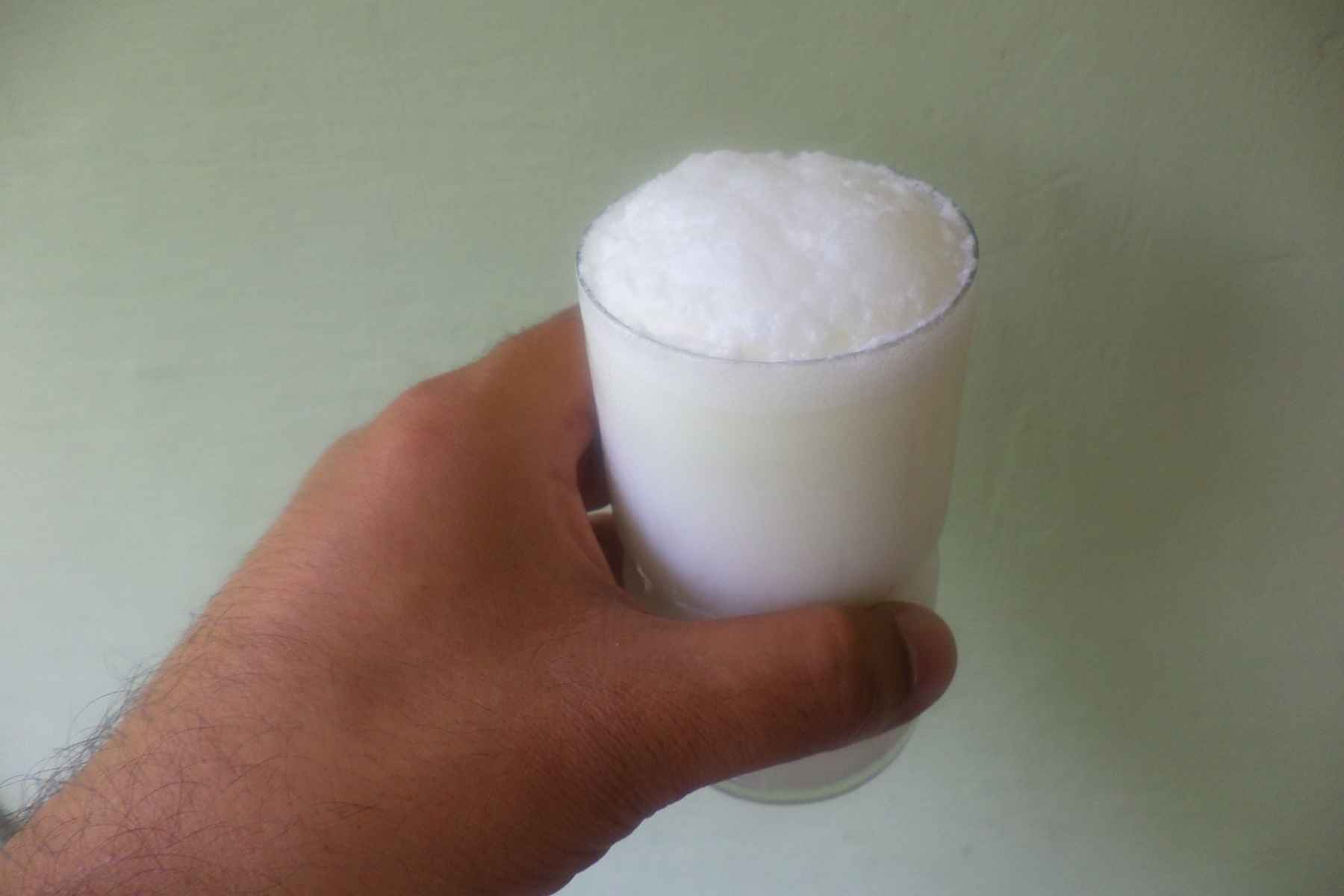Can Dogs Have Buttermilk?

When it comes to taking care of our canine friends, most of us want to know whether or not they can enjoy the same foods as us. Dogs have different biology and thus require more specialized care and consideration with what we feed them.
For instance, many people love buttermilk, but is this something you can give to your dog? Believe it or not, not only is buttermilk safe to give your dog, it actually offers a variety of health benefits.
There are some caveats, of course, but it is perfectly safe to give your dog buttermilk for the most part. It’s even a pretty good idea to give your dog buttermilk, for the most part.
In this article, we will discuss the numerous benefits of giving your dog buttermilk and the few risks that might need to be taken into consideration.
If you’ve already been giving your dog buttermilk, don’t worry about it too much: the hazards aren’t very serious, nor are they a severe problem in most cases.
Why is Buttermilk Good for Dogs?
Buttermilk is full of protein and calcium, primarily. Both of these are crucial aspects of a dog’s diet. Some experts have even gone so far as to call buttermilk “liquid bones” thanks to the nutritional value they provide.
Buttermilk can provide similar nutrition to actual dog food in many cases.
Of course, there’s more to say than just “it’s high in nutrients.” You probably want to know what exactly buttermilk can do for your dog.
We’ll cover the various benefits in detail down below. The good news is that there are quite a few valuable benefits that buttermilk can provide to your dog. There are a few risks too, but they are minor.
Digestive Aid
Buttermilk is high in more than just calcium and protein. It’s also very high in probiotics, which are helpful if your dog has digestive problems.
Probiotics can help deal with diarrhea and indigestion and improve the immune system. They also help with the absorption of nutrients. In short, lots of probiotics are suitable for your dog.
Healthy Hydration
Hydration is crucial to the livelihood of any dog, and while you can, of course, use water to achieve this, buttermilk can do it too, while also offering many extra benefits on top of that.
Not only does buttermilk keep a dog hydrated, but dogs can more easily absorb nutrients found in food than in water. This can be very useful.
Basically, you can hydrate your dog with water, but you can do that with buttermilk too, and the latter provides extra benefits.
This doesn’t mean you should replace the water in your dog’s diet with buttermilk, as nothing truly replaces the value of water, but every once in a while, you could fill their bowl with buttermilk instead.
Calcium Supplement
Calcium is a vital part of bone growth and health and is very important in preventing problems like arthritis or osteoporosis.
Calcium also helps with blood clotting and blood pressure. Buttermilk is full of calcium and can easily meet your dog’s daily calcium needs. It also helps maintain blood sugar levels for maintaining weight.
Provision of Essential Vitamins
Buttermilk is also quite plentiful in an array of valuable vitamins, including Vitamin B2, Vitamin B1, and Vitamin D.
These three vitamins contribute to regulating amino acids, cellular metabolism, and maintaining calcium and phosphorous levels, respectively. All of these vitamins are very useful for your dog to have.
Because of this, buttermilk makes an excellent treat for your dog. Considering these vitamins and all of the other benefits mentioned before and mentioned later, buttermilk can make a massive difference in any dog’s diet, provided that they are not lactose intolerant. More on that later, since it can be a big deal.
Allergy Relief
Buttermilk contains live culture, which not only helps with digestion but it also helps fight allergies.
So if your dog has issues with seasonal allergies, or even year-round allergies, adding buttermilk to their diet can make a significant difference on these fronts.
Of course, there are other options, like medicine, but buttermilk may eliminate the need for it.
Bloating and Gas Relief
As mentioned before, buttermilk is very high in probiotics, so if your dog suffers from bloating or gas problems, buttermilk can help them here as well.
This marks yet another significant benefit of giving buttermilk to your dog. It’s also the last major benefit to discuss before discussing some caveats to providing buttermilk to your dog.
Special Considerations Regarding Buttermilk
While there are many benefits to buttermilk for your dog, consider some things before providing it. First and foremost is whether or not your dog is lactose intolerant.
Dogs can also have varying allergies, digestive issues, and other problems related to age. Some of these could make buttermilk less ideal for a dog.
It’s usually a good idea to consult a veterinarian to grasp how much buttermilk your dog should get allowed to have every day. Daily buttermilk is usually not recommended, and most vets would agree that dogs should get a few cups a week in most cases. After all, too much of a good thing is a problem.
If a dog overeats buttermilk, it can develop stomach issues, excess gas, or vomiting, though that last one would only be for extreme amounts of consumption.
It’s also recommended that you make homemade buttermilk when possible instead of buying it from the store since it can have other additives.
If you make your own buttermilk, avoid adding anything unnecessary to it. No need to make it sweeter with things like honey or cinnamon! Dogs generally don’t need anything too fancy, and adding extra stuff to the buttermilk is more likely to cause problems than it is to make it any better for them.
Potential Risks of Buttermilk for Dogs
While buttermilk is mainly a benefit for dogs, there are some ways in which it can cause problems for dogs, though this usually isn’t a huge issue.
One of the main things to worry about is whether or not a dog is lactose intolerant, which means they cannot properly digest lactose found in dairy products.
Buttermilk is lower in lactose than regular milk, but it could cause gas or diarrhea in lactose-intolerant dogs. It could even contribute to pancreatitis in dogs sensitive to lactose.
If your dog is not lactose intolerant, there isn’t much in the way of risk in allowing it to have buttermilk other than giving them too much too quickly.
Of course, the likelihood of a dog being lactose intolerant has a lot to do with their age and other health factors.
We recommend that you always consult a vet before deciding to share buttermilk with your dog. Even if you have the best intentions, you’ll do more harm than good if your dog is not suited for buttermilk.
Moderation is key. Even if your dog is not lactose intolerant, always give it buttermilk in moderation. Too much of it in too short of a window of time will likely make your dog sick, just as if it had overeaten other food.
Summary
Buttermilk is high in several valuable nutrients and vitamins, including protein, calcium, probiotics, and Vitamin B1, B2, and D. There is nothing toxic to worry about, so it is perfectly safe to feed your dog. Due to the high count of healthy nutrients and vitamins, buttermilk provides your dog with many health benefits.
It can be used as a source of healthy nutrition, can offer gastrointestinal or allergy relief, and supports the growth of strong, healthy bones.
There’s only really one situation in which it would be a bad idea to give your dog buttermilk, and that is if they are lactose intolerant. Buttermilk has less lactose than regular milk, but still enough to cause problems.
If your dog is lactose intolerant, buttermilk can cause big issues, mainly regarding their gastrointestinal health.
But if your dog is not lactose intolerant, the only risk of feeding them buttermilk is if you give them too much in too short of a timespan. Buttermilk should be offered to your dog in moderation so it doesn’t get sick.
Our best advice is to consult a veterinarian before deciding whether to give your dog buttermilk. A vet will have a much better understanding of your dog’s needs and health and will be able to tell if buttermilk is a good choice to give them.
All of that said, in most cases, you can give your dog buttermilk without worry.






